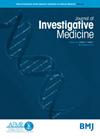Contemporary antiplatelet therapy for secondary stroke prevention: a narrative review of current literature and guidelines
IF 2.6
1区 医学
引用次数: 11
Abstract
Antiplatelet therapy is one of the mainstays for secondary stroke prevention. This narrative review aimed to highlight the current evidence and recommendations of antiplatelet therapy for stroke prevention. We conducted advanced literature search for antiplatelet therapy. Landmark studies and randomised controlled trials evaluating antiplatelet therapy for secondary stroke prevention are reviewed. Results from Cochrane systematic review, pooled data analysis and meta-analysis are discussed. Single-antiplatelet therapy (SAPT) with aspirin, aspirin/extended-release dipyridamole or clopidogrel reduces the risk of recurrent ischaemic stroke in patients with non-cardioembolic ischaemic stroke or transient ischaemic attack (TIA). Dual-antiplatelet therapy (DAPT) with aspirin and clopidogrel or ticagrelor for 21–30 days is more effective than SAPT in patients with minor acute noncardioembolic ischaemic stroke or high-risk TIA. Prolonged use of DAPT is associated with higher risk of haemorrhage without reduction in stroke recurrence than SAPT. Compared with placebo, aspirin reduces the relative risk of recurrent stroke by approximately 22%. Aspirin/dipyridamole and cilostazol are superior to aspirin but associated with significant side effects. Cilostazol or ticagrelor might be more effective than aspirin or clopidogrel in patients with intracranial stenosis. SAPT is indicated for secondary stroke prevention in patients with non-cardioembolic ischaemic stroke or TIA. DAPT with aspirin and clopidogrel or ticagrelor for 21–30 days followed by SAPT is recommended for patients with minor acute noncardioembolic stroke or high-risk TIA. Selection of appropriate antiplatelet therapy should also be based on compliance, drug tolerance or resistance.当代抗血小板治疗预防二次脑卒中:对现有文献和指南的叙述性综述
抗血小板治疗是继发性脑卒中预防的主要手段之一。这篇叙述性综述旨在强调抗血小板治疗预防中风的现有证据和建议。我们对抗血小板治疗进行了先进的文献检索。回顾了评估抗血小板治疗对继发性卒中预防的里程碑式研究和随机对照试验。本文讨论了Cochrane系统评价、汇总数据分析和荟萃分析的结果。阿司匹林、阿司匹林/缓释双嘧达莫或氯吡格雷的单抗血小板治疗(SAPT)可降低非心源性缺血性卒中或短暂性缺血性发作(TIA)患者复发性缺血性卒中的风险。在轻度急性非心栓塞性缺血性卒中或高危TIA患者中,阿司匹林联合氯吡格雷或替格瑞洛双抗血小板治疗(DAPT) 21-30天比SAPT更有效。与SAPT相比,长期使用DAPT与更高的出血风险相关,且卒中复发不减少。与安慰剂相比,阿司匹林可使卒中复发的相对风险降低约22%。阿司匹林/双嘧达莫和西洛他唑优于阿司匹林,但有明显的副作用。对于颅内狭窄患者,西洛他唑或替格瑞洛可能比阿司匹林或氯吡格雷更有效。SAPT适用于非心脏栓塞性缺血性卒中或TIA患者的继发性卒中预防。轻度急性非心源性卒中或高危TIA患者推荐DAPT联合阿司匹林、氯吡格雷或替格瑞治疗21-30天,然后再进行SAPT治疗。选择合适的抗血小板治疗也应基于依从性、药物耐受性或耐药性。
本文章由计算机程序翻译,如有差异,请以英文原文为准。
求助全文
约1分钟内获得全文
求助全文
来源期刊

Journal of Investigative Medicine
MEDICINE, GENERAL & INTERNALMEDICINE, RESE-MEDICINE, RESEARCH & EXPERIMENTAL
自引率
0.00%
发文量
111
期刊介绍:
Journal of Investigative Medicine (JIM) is the official publication of the American Federation for Medical Research. The journal is peer-reviewed and publishes high-quality original articles and reviews in the areas of basic, clinical, and translational medical research.
JIM publishes on all topics and specialty areas that are critical to the conduct of the entire spectrum of biomedical research: from the translation of clinical observations at the bedside, to basic and animal research to clinical research and the implementation of innovative medical care.
 求助内容:
求助内容: 应助结果提醒方式:
应助结果提醒方式:


